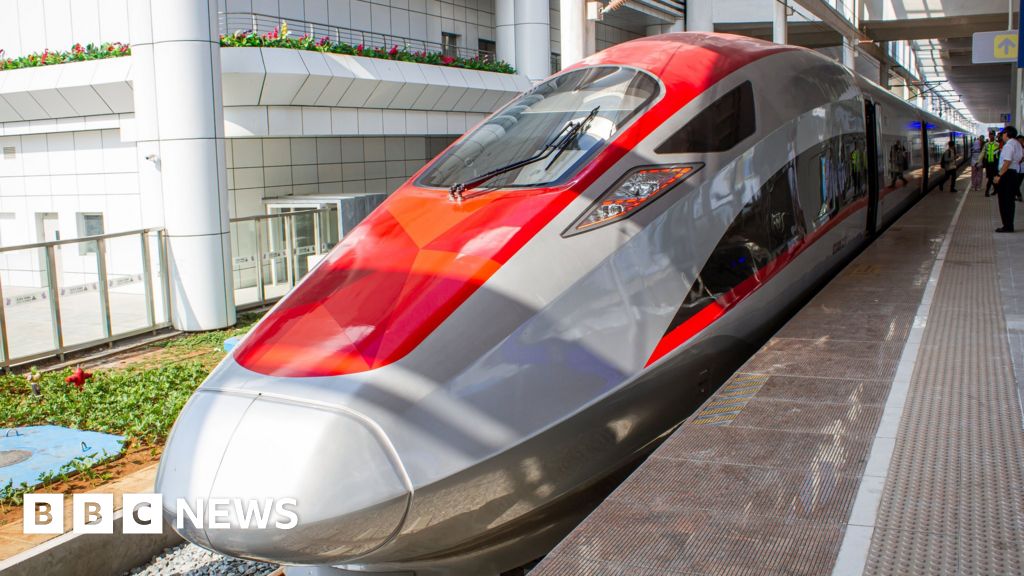- cross-posted to:
- trains@lemmy.ml
- cross-posted to:
- trains@lemmy.ml
Indonesia has inaugurated its first high-speed railway, a $7.3bn (£5.9) project backed by China under its Belt and Road Initiative.
President Joko Widodo launched the service, which connects the capital Jakarta to Bandung, a top economic hub.
The railway is named Whoosh, a Bahasa Indonesia acronym that translates to time-saving and reliable.
Mr Widodo has prioritised projects like Whoosh to ease the country’s severe traffic jams.
The railway was originally scheduled to open in 2019 but was delayed due to land disputes, the Covid-19 pandemic and a $1.2bn (£984m) budget overrun.
Considering how insanely bad the traffic is on Java this is a welcome addition.
High speed rail connecting major cities is usually second only to reducing the need to travel entirely.
Whoosh! What a great name lol.
This is the best summary I could come up with:
President Joko Widodo launched the service, which connects the capital Jakarta to Bandung, a top economic hub.
The railway was originally scheduled to open in 2019 but was delayed due to land disputes, the Covid-19 pandemic and a $1.2bn (£984m) budget overrun.
Whoosh is operated by PT KCIC, a joint venture made up of four Indonesian state companies with Beijing’s China Railway International.
The bullet train’s speed will mainly appeal to business travellers and tourists, according to Dedi Dinarto, lead Indonesia analyst at strategic advisory firm Global Counsel.
“It raises uncertainty about whether this substantial infrastructure investment, funded both by China and the national budget, will prove profitable for the government,” he said.
The project is part of Chinese President Xi Jinping’s 10-year-old Belt and Road initiative, an ambitious plan to connect Asia with Africa and Europe through a series of land and sea networks via investments in local infrastructure.
The original article contains 527 words, the summary contains 150 words. Saved 72%. I’m a bot and I’m open source!
The bullet train’s speed will mainly appeal to business travellers and tourists, according to Dedi Dinarto, lead Indonesia analyst at strategic advisory firm Global Counsel.
“It raises uncertainty about whether this substantial infrastructure investment, funded both by China and the national budget, will prove profitable for the government,” he said.
Yeah because ordinary people never wanna travel on trains. They prefer traffic jams. Fuck off…
deleted by creator
The areas around Jakarta and Bandung are not dirt poor backwaters; there are literally millions of middle class Indonesians able to afford such prices, and more every year as the country develops. Also, having high speed rail tickets as low as $16, which the article admits is “comparable” to other options, is already a huge feat!
This simply sounds like the writer is casting around for any negative views they can find, in order to shape a narrative. You can unearth such grousing about any infrastructure project, no matter how worthy, if you ask enough people.
deleted by creator
Likely it’s price is too great for your typical Indonesian to use casually.





